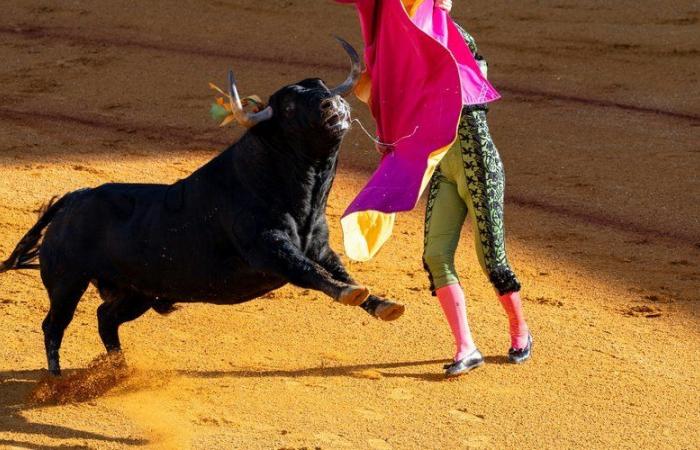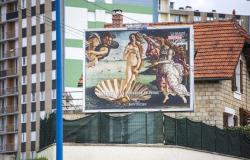The Senate largely rejected Thursday a text banning bullfighting shows for minors under 16, at the end of a debate which revived divisions between protectors of local traditions and defenders of the animal cause.
Some intended to protect children from “traumatic” scenes, others feared “the death” of bullfighting in France… And it was the latter who won their case in the upper house, with a rejection voted by 237 votes to 64 , in a sparse hemicycle. A far from unexpected outcome in the “chamber of territories”, dominated by the right and the centrists.
Especially since the government was also unfavorable to this proposal, like most of the communist group and half of the socialist group. The text from Macronist senator Samantha Cazebonne intended to prohibit the organization of bullfight shows in the presence of children under 16, in the name of “child protection”. “Is it acceptable for minors to witness the suffering of a living being, while their understanding of the values of compassion and kindness is still being formed? We have a duty to protect their innocence,” launched the author of the text.
The latter had received in recent days the support of numerous elected officials, the SPA and anti-corrida associations and collectives. “Once again, France has missed the opportunity to comply with the recommendations of the (UN) Committee on the Rights of the Child, which recommended prohibiting minors from accessing bullfighting shows. “, regretted Claire Starozinski, president of the Anti-Corrida Alliance, to AFP. But the camp of the defenders of bullfighting was also widely supported, with a significant media response in the territories where bullfighting remains an “uninterrupted local tradition”, the only ones where this practice is still authorized as an exception. “Considering that only parents have the right to include or not the bullfighting culture in the education of their children […] the Senate has taken an important step on the path to the definitive protection of bullfighting in France”, welcomed the Union of French Bullfighting Cities (UVTF).
“Let’s respect our culture”
These arguments were taken up very widely on the benches of the Senate. “Let’s respect our identities, let’s respect our culture and let parents choose to pass it on!”, said Senator LR du Gard Laurent Burgoa. The Minister of Justice Didier Migaud had a more legal reading of this proposal, which he considered disproportionate. “The State must not intervene (on parental authority) otherwise it will appear paternalistic, or even invasive, and ultimately disempower parents,” he justified.
The sanctions provided for by the text, which can go up to five years of imprisonment and a fine of 75,000 euros, were also highlighted, as was the accountability of the organizers more than of the minors or the families themselves. “Sanking a show organizer for the presence of a young person in the audience is completely inconsistent,” noted Louis Vogel (Horizons), rapporteur on this text. Several voices also feared local economic repercussions.
“Depriving families who wish to go there of shows, sometimes out of passion, but also simply out of curiosity or to form an opinion, is also to deprive these territories of a particular attractiveness,” noted communist Cécile Cukierman. But the debates went well beyond the aspect of child protection, with some elected officials accusing the authors of the text of having bullfighting itself as a “real target”.
“More skillfully than by advocating a total ban, (this text) pursues the same aims: to prevent any transmission to younger generations and therefore condemn bullfighting to certain death,” said senator LR of Pyrénées-Atlantiques Max Brisson. A sign of the sensitivity of the debate, the discussion took place two years after the shortened examination of another text from the related LFI deputy Aymeric Caron, who wanted to completely ban bullfighting. The National Assembly had never voted on this bill.






